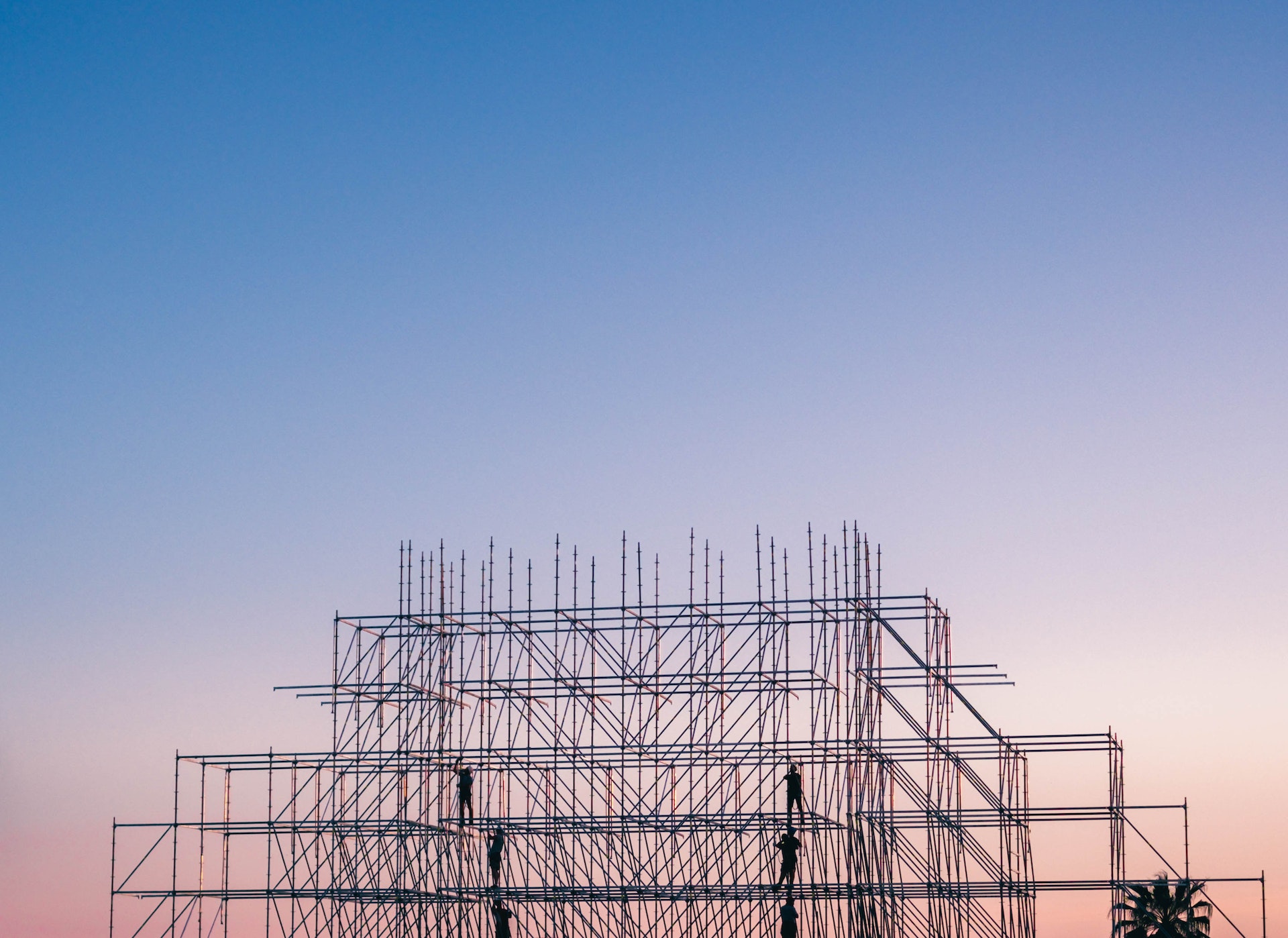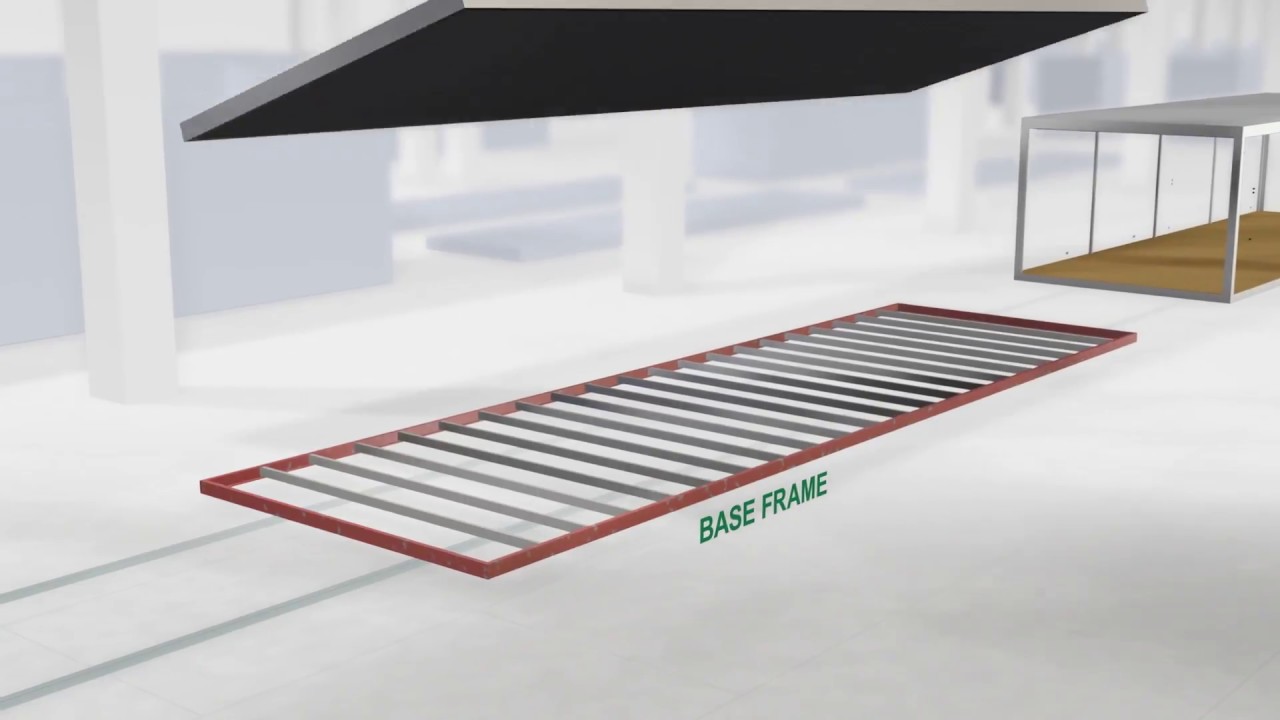Modular Construction - The Future Of Sustainable And Efficient Building
Modular construction is a new way of building that involves making sections or modules of a building off-site, then transporting them to the building site and putting them together.
Author:George EvansMar 14, 202321.8K Shares948.7K Views

Modular constructionis an innovative building method that involves constructing pre-fabricated modules or sections of a building off-site, then transporting and assembling them on the construction site.
This process offers numerous benefits over traditional construction methods, including increased efficiency, reduced waste, and improved quality control.
In this article, we will explore the concept of modular construction in more detail, including its advantages, applications, and potential drawbacks.
What Is Modular Construction?
Modular construction, also known as prefabricated construction, involves constructing buildings off-site in a factory-controlled environment, then transporting and assembling them on the building site. The building is constructed in sections or modules, which can be combined to form the complete structure.
Modular construction has been gaining popularity in recent years, especially in the construction of residential, commercial, and institutional buildings. This method of construction has numerous benefits, including cost savings, reduced construction time, and improved quality control.
The modules are produced in a controlled environment, which ensures that they meet the required standards and specifications. This process minimizes errors and inconsistencies that may occur during the traditional on-site construction process.
The use of computer-aided design and other digital technologies enables precise and accurate construction.

The fascination of modular construction | ALHO
Types Of Modular Construction
Modular construction is a versatile construction method that can be used to create a wide range of building types. Here are some of the most common types of modular construction:
- Residential- Modular construction can be used to create single-family homes, multi-family buildings, and even entire housing developments. Modular residential buildings are becoming increasingly popular due to their affordability, speed of construction, and energy efficiency.
- Commercial- Modular construction is well-suited for a variety of commercial buildings, including offices, retail spaces, and restaurants. These buildings can be designed to meet the unique needs of each business, and can be constructed quickly to minimize downtime.
- Educational- Modular construction can also be used to create educational buildings, such as classrooms, libraries, and administrative offices. These buildings can be customized to meet the specific needs of each school or educational institution, and can be built quickly to accommodate growing student populations.
- Healthcare- Modular construction is an ideal solution for healthcare buildings, such as hospitals, clinics, and medical offices. These buildings can be designed to meet strict healthcare regulations, and can be constructed quickly to minimize disruption to patients and staff.
- Hospitality- Modular construction can also be used to create hotels, motels, and other hospitality buildings. These buildings can be designed to meet the unique needs of each business, and can be constructed quickly to minimize downtime and maximize revenue.
Advantages Of Modular Construction
Modular construction offers several advantages over traditional construction methods, including:
- Time-saving- Since modules are constructed off-site in a controlled environment, the construction time is significantly reduced compared to traditional on-site construction. Modular construction projects can be completed in almost half the time of traditional construction projects.
- Cost-effective- Modular construction can be more cost-effective than traditional construction due to several factors such as lower material waste, reduced labor costs, and faster construction time.
- Quality control- Modules are constructed in a controlled environment, which ensures better quality control and consistency in construction. Also, since the modules are designed and built to exact specifications, there is less room for errors or mistakes.
- Flexibility - Modular construction offers a high level of flexibility and customization in design, making it a suitable option for a variety of projects. Modular buildings can be easily reconfigured, expanded, or relocated as per the requirement.
- Sustainability- Modular construction is considered to be an eco-friendly option as it generates less waste, uses fewer materials, and requires less transportation. Modular buildings can also be designed to be energy-efficient and use sustainable materials.
- Safety- Since most of the construction work is done off-site, there is less noise, dust, and disturbance on the construction site. This makes it a safer option for workers and the public.
Materials Used In Modular Construction
Here are some commonly used materials in modular construction:
- Steel- Steel is a popular material used in modular construction due to its durability, strength, and flexibility. Steel-framed modular units can withstand harsh weather conditions and offer excellent fire resistance.
- Wood- Wood is another material commonly used in modular construction. Wood-framed modules are lightweight, cost-effective, and energy-efficient. They are suitable for residential and low-rise commercial buildings.
- Concrete- Concrete is a durable and robust material used in modular construction for its thermal mass properties. It is suitable for high-rise and large commercial buildings.
- Brick and Masonry- Brick and masonry are materials used in modular construction for their aesthetic appeal and durability. They offer excellent thermal insulation and are suitable for low-rise and mid-rise buildings.
- Insulated Panels- Insulated panels made of foam and metal or wood are increasingly being used in modular construction due to their energy efficiency, durability, and speed of installation. These panels offer excellent insulation properties and are suitable for residential and commercial buildings.
Applications Of Modular Construction
Modular construction has been used in various applications, including:
- Residential construction- Modular construction is commonly used to build homes, apartments, and other types of residential buildings. The modules can be designed to fit different architectural styles and can be customized to meet specific client needs.
- Commercial construction- Modular construction is also popular in commercial construction, such as for office buildings, hotels, and retail spaces. The modules can be easily reconfigured to meet changing tenant needs and can be built more quickly than traditional construction methods.
- Healthcare facilities- Modular construction is an efficient and cost-effective way to build healthcare facilities, including hospitals, clinics, and laboratories. The modules can be pre-fabricated off-site and then quickly assembled on-site, reducing construction time and minimizing disruption to ongoing medical services.
- Education facilities- Modular construction is also used to build schools, universities, and other educational facilities. The modules can be designed to accommodate different classroom configurations, and the construction process can be completed during summer breaks to minimize disruptions to student learning.
- Industrial construction- Modular construction is also used to build industrial facilities, such as factories and warehouses. The modules can be designed to accommodate specialized equipment and can be easily expanded or reconfigured as production needs change.
People Also Ask
How Does Modular Construction Differ From Traditional Construction Methods?
Modular construction differs from traditional construction methods in that it involves the fabrication of building components offsite in a factory-controlled environment, then transporting them to the construction site for assembly.
What Are Some Benefits Of Modular Construction?
Some benefits of modular construction include reduced construction time, cost savings, improved quality control, and increased sustainability.
How Customizable Are Modular Buildings?
Modular buildings are highly customizable and can be designed to fit specific project requirements, including size, layout, and aesthetic features.
Is Modular Construction Suitable For All Types Of Buildings?
Modular construction can be used for a variety of building types, including residential, commercial, industrial, and institutional structures.
What Is The Lifespan Of Modular Buildings?
Modular buildings have a lifespan comparable to traditional buildings, typically lasting 50-60 years with proper maintenance and upkeep.
Final Words
Modular construction is a highly efficient and cost-effective method of building that is rapidly gaining popularity in the construction industry.
Its advantages of speed, affordability, sustainability, and flexibility make it a viable solution for various building projects.
With advancements in technology and design, modular construction has the potential to transform the construction industry and provide innovative solutions to the world's housing and infrastructure challenges.
As more people recognize the benefits of modular construction, it is likely to become a mainstream building technique, revolutionizing the way we think about construction and design.

George Evans
Author
George Anderson, an exceptional architectural designer, envisions and brings to life structures that transcend the realm of imagination. With an unwavering passion for design and an innate eye for detail, George seamlessly blends form and function, creating immersive spaces that inspire awe.
Driven by a deep appreciation for the interplay of space, light, and materials, George's innovative approach redefines the possibilities of architectural design. His visionary compositions leave an indelible mark, evoking a sense of wonder and transforming the built environment.
George Anderson's transformative designs and unwavering dedication continue to shape the architectural landscape, pushing the boundaries of what is possible and inspiring generations to come.
Latest Articles
Popular Articles